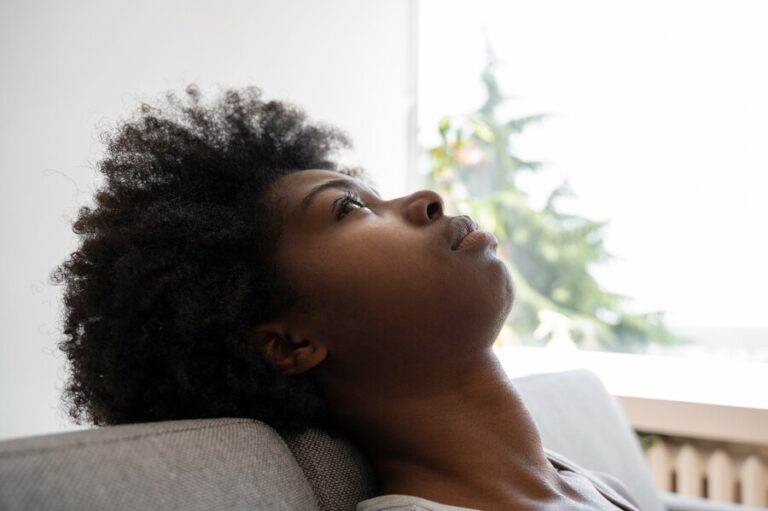
image credit to freepik
Writing by John Tanko 09/12/2024
Along with anxiety, depression is one of the most common mental health problems affecting millions around the world. Though established methods of mental health treatment like therapy and inpatient programs work, Intensive Outpatient Programs (IOPs) have revolutionised the way many individuals seek organisation in their lives without breaking their routines.
This article came to the conclusion that iop mental health can be a game changer for treating anxiety and depression: Deseret | Mental health experts hope it’s a game changer: Intensive outpatient programs for anxiety, depression
What Is An Intensive Outpatient Program (IOP)?
Dr. Emily Carter, PhD, a licensed clinical psychologist at the Mindful Recovery Institute, explains that iop mental health “are structured, evidence-based programs designed to allow adequate mental health care while maintaining normal day-to-day activities like going to work, school, or tending to your family.”
IOPs are designed to be held multiple times a week, often combining individual therapy, group counselling, and skill-building activities. IOPs on iop mental health also do not require stays overnight, which makes them a flexible and accessible option for many people, in contrast to inpatient programs.
How IOPs are Uniquely Beneficial for Anxiety and Depression
Rich Support in a Flexible Format
One of the main benefits of IOPs, according to Dr. James Patel, MD, a psychiatrist who specializes in mood disorders, is their flexibility. “For many patients with anxiety or depression, being able to get intensive treatment without putting your life on pause is really valuable,” Dr. Patel says.
Participants usually come three to five times a week for 2-4 hours per session. This regimen fosters a clear environment through recovery that accommodates both personal and professional obligations.
Evidence-Based Therapies
IOPs are designed to incorporate evidence-based treatments, such as Cognitive Behavioral Therapy (CBT), Dialectical Behavior Therapy (DBT), mindfulness practices. A 2021 study in the Journal of Clinical Psychiatry found marked improvements in symptom reduction among patients enrolled in IOPs for anxiety and depression compared to those receiving standard outpatient treatment.
“CBT works to help patients recognize and dispute faults in their thinking, so it’s especially helpful for people with anxiety and depression,” says Dr. Lisa Nguyen, PsyD, a therapist who’s trained in CBT.
Building Community and Peer Support
Group therapy forms the foundation of many IOPs. Discussing experiences with people who experience the same challenges creates a sense of belonging and helps to reduce the feeling of isolation.
“One of the most powerful components of IOPs is the community support,” says Dr. Sarah Thompson, LCSW. “To hear other people’s stories and ways of coping with anxiety and depression can be inspiring and cathartic.”
Long-Term Recovery Skill Development
Participants in IOPs will learn practical coping strategies that can help them manage their symptoms and reduce the risk of a relapse. Such skills might themselves include stress-management techniques, emotional regulation, and healthy communication strategies.
Dr. Patel states that one of the main focuses of IOPs iop mental health is building skills: “Patients graduate from these programs with a feeling of wellness but also the skills to maintain mental well-being for the long-term.”
Bridging Inpatient and Outpatient Care
For those stepping down from inpatient treatment or needing something more intense than typical outpatient therapy, IOPs offer a happy medium. This fluidity of care is imperative for long-term recovery.
Making a Difference in the Real World: Success Stories
A Case Study: This is how Emma recovered
Emma, 32, a marketing professional, had struggled with debilitating anxiety and depression that impacted her work and relationships. After she was hospitalized for the first time, her psychiatrist suggested an IOP.
“The IOP provided me with the tools and support I needed to get my life back,” Emma says. “The three-way combination of therapy, peer support, and skill-building was just what I needed to find myself and cope with my anxiety.”
How to Find an Intensive Outpatient Program (IOP) for Anxiety and Depression
Dr. Carter recommends that people talk to their primary physician or a mental health provider about reputable IOPs. Online directories, like those from the National Alliance on Mental Illness (NAMI) or from the Substance Abuse and Mental Health Services Administration (SAMHSA), are also great resources.
Things to Consider When Choosing an IOP:
Accreditation: Look for an accredited program.
Specialties: Search for programs that specialize in anxiety and depression.
Convenient: Select a program that fits in to your schedule and make sure it is located near you.
Reviews and testimonials: Read reviews or, when possible, talk to past participants.
Conclusion
Jordan have changed the game for people seeking care for anxiety and depression through Intensive Outpatient Programs. With their combination of flexibility, evidence-based treatment modalities, and strong support networks, IOPs provide the tools that individuals need to own their iop mental health Journey and equip themselves for enduring recovery.
Whether it’s you or a loved one that needs to get a handle on anxiety or depression, the power of an IOP can help. Recovery is possible with the right help.
References
Mindful Recovery Institute – Dr. Emily Carter, PhD
Journal of Clinical Psychiatry, 2021: “Intensive Outpatient Programs for Mood Disorders: Clinical Outcomes”
National Alliance on Mental Illness (NAMI) – www. nami. org
Substance Abuse and Mental Health Services Administration (SAMHSA) – www. samhsa. gov
Interviews with Experts: Dr. James Patel, MD; Dr. Lisa Nguyen, PsyD; Dr. Sarah Thompson, LCSW